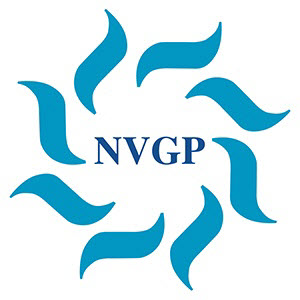The Validity of the Group Questionaire
Thayer, Stephen D.; Burlingame, Gary M. Group Dynamics. Dec2014, Vol. 18 Issue 4, p318-332 The Validity of the Group Questionaire: Construct Clarity or Construct Drift? Verslag: Willem de Haas
Samenvatting
The Group Questionnaire (GQ) is a recently developed survey that assesses the quality of the therapeutic relationship in group treatment by measuring quality across 3 structural dimensions of the relationship: member–member, member–leader, and member– group. Its 3 quality subscales—Positive Bonding Relationship, Positive Working Relationship, and Negative Relationship—are taken from the 3-factor conceptualization of the group therapeutic relationship originally proposed byJohnson and colleagues (2005). The purpose of the present study was to estimate the GQ’s constructand criterion-related validity by (a) replicating theJohnson et al. (2005)factor structurewith a similar sample and (b) correlating the GQ with the measures from which it was originally derived (i.e., Working Alliance Inventory, Burns Empathy Scale, Therapeutic Factors Inventory, Group Climate Questionnaire). Two hundred ninety participants were recruited from 65 treatment groups at 4 university counseling centers and 1community mental health clinic. Confirmatory factor analysis (CFA) fit indexes from both single- and multiple-level analyses met standards for acceptable model fit. Intra-class correlation coefficients (ICC) suggested the GQ is sensitive to group level processes, and the predicted correlation coefficients between the GQ and the criterionmeasures were sufficiently high to lend support for the GQ’s criterion-related validity. The present study’s findings provide support that the GQ is an empirically validmeasure of the quality of the group therapeutic relation
Wat betekent dit voor de groepspsychotherapie?
Dit psychometrisch onderzoek test de validiteit van de Group Questionaire (GQ), de door Johnson en Burlingame (2005) beschreven self-report vragenlijst over de therapeutische (werk)relatie van groepsleden met elkaar en met de groepstherapeut. Johnson et al hebben die groepstherapeutische werkrelatie geoperationaliseerd in drie relatiefactorens: positieve emotionele relatie, positieve werkrelatie en negatieve emotionele relatie. In eerder onderzoek is een positief verband tussen positieve scores op de GQ en therapieresultaat aangetoond. Dit onderzoek gaat over de validiteit, en de uitkomst is positief. Behalve dat het een betrouwbaar instrument is, is ook de validiteit goed, dwz het meet inderdaad wat het moet meten, de drie factoren van Johnson.
Het onderstreept voor de groepstherapeut in de praktijk het belang van cohesie en een duidelijke werkstructuur in de therapiegroep. Johnson, J. E., Burlingame, G. M., Olsen, J. A., Davies, D. R., & Gleave, R. L. (2005). Group climate, cohesion, alliance, and empathy in group psychotherapy: Multilevel structural equation models. Journal of Counseling Psychology, 5.
| Relevantie voor richtlijnen | O O O O O |
| Relevantie voor onderzoek | O O O O O |
| Relevantie voor groepsbehandeling | O O O O O |
| Relevantie voor teamcoaching | O O O O O |
| Relevantie voor groepsdynamicaopleiding | O O O O O |
| Relevantie voor groepstherapieopleiding | O O O O O |
| Relevantie voor KP opleiding | O O O O O |
